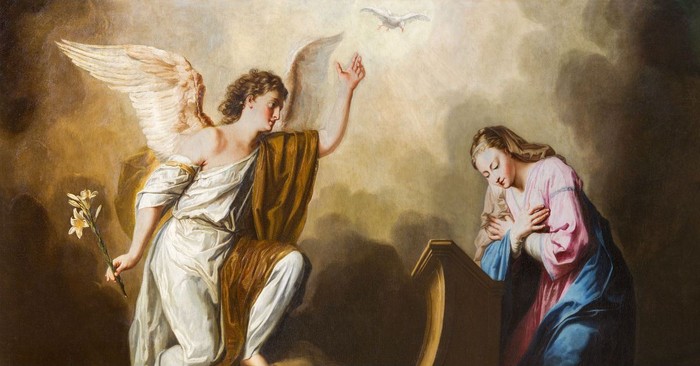
Tamar, Rahab, Ruth, Bathsheba, and Mary unite for one cause: the glory and hope of Israel, God with us, Immanuel. These five women listed in Jesus’ genealogy lived intriguing lives. Their stories thread throughout time and intertwine with ours. They point us to redemption, hope, grace, love, and a life lived well for Christ.
These women came from diverse backgrounds. Some were born Israelites and others were grafted in, but God brought them together for one purpose – the human line from which Jesus would be born.
To our finite eyes, Jesus didn’t come from the most noble of people. No, some of those listed in Matthew 1 lived lives that can be categorized as scandalous. However, God saw something that we cannot see—he saw the heart. The heart that he longs to redeem from a sin-trapped life and a heart that longs for him more than anything.
Did these women realize they were living out the prophecies of the Old Testament? Probably not. Maybe we should focus less on the outcome of our circumstances and more on cultivating our hearts. If we can cultivate the following 10 attitudes, we might find ourselves being used for glorious purposes that stretch beyond our wildest imaginations.
Photo Credit: Thinkstock/sedmak

1. Belief
Mary reveals that it’s neither our age nor our remarkableness that causes us to be noticed, but it’s the heart. Her belief caused her to be called “highly favored” (Luke 1:28) by the angel that visited her that fateful day. And instead of doubting, she quickly declared, “let it be to me according to your word” (Luke 1:38). The prophecies of Christ woven throughout the Old Testament come to fruition in this moment in time. Our redemption, God’s glory, and Mary’s immediate willingness to say the hard yes is forever embedded on my heart.
Photo Credit: Thinkstock/mrkornflakes

2. Faith
Mary’s yes to God didn’t mean that her life on earth was going to be easy. Joseph had every right to stone her, according to Old Testament Jewish law, but he planned on choosing the more merciful route of divorce until he had his own revelation from God.
But not everyone had that same revelation, and it’s likely that Mary and Joseph lived their entire lives surrounded by gossipy tongues degrading her character. Her yes brought suffering, but her faith brought refinement. May we pray that God grows our faith as we follow Christ, come what may.
Photo Credit: Unsplash

3. Trust
Imagine the trust Mary must have had in order to endure the whispers and averted eyes. How she must have treasured the angel’s visits, the shepherd’s awe, and the wise men’s gifts in her heart while she walked the difficult journey to Bethlehem. And then again when they had to flee to Egypt in the middle of the night, and still again when she watched the boy she nursed, loved, and taught be crucified to redeem the world.
Grief followed Mary as well as her redemption. When we say yes to God, whether he calls us to the desert, beside still waters, or through the storm, our yes merges with trust and produces redemption in our hearts.
Photo Credit: Thinkstock/lukbar
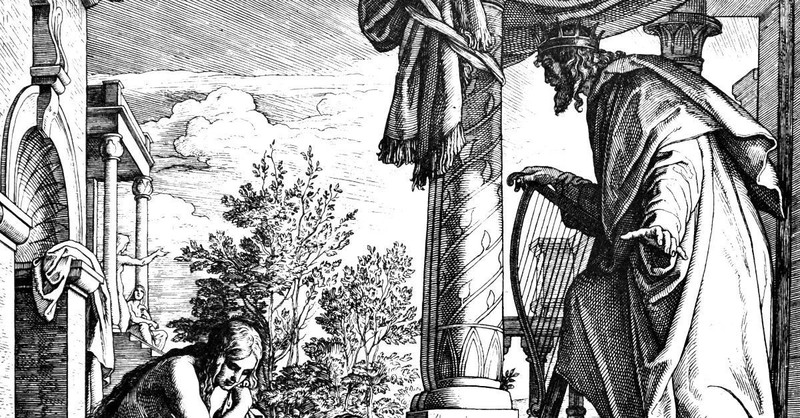
4. Redemption
The very idea of redemption is foreign to many of us. Sometimes it feels as though we have been part of something far too sinful and painful to believe that we could be redeemed. If ever a woman needed redemption, it was Bathsheba. Here is a woman used as a pawn in a man’s desire, and whose life changed in ways she never dreamed.
Bathsheba carried much hurt in her heart. She was used by the king. Then her husband was murdered. Then she married the king. Her first son, conceived with the king, died as a consequence to the sin. Yet Bathsheba received redemption. Her son, Solomon, would become the future King of Israel. God not only forgives our sins but offers redemption and makes our past into something beautiful.
Photo Credit: Thinkstock/Ruskpp
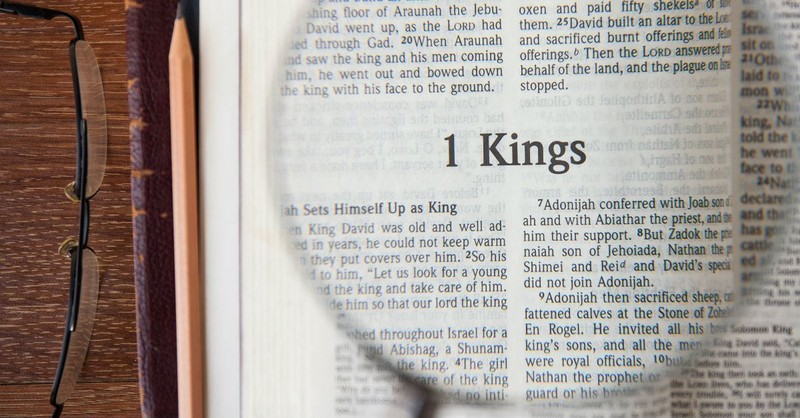
5. Mercy
We pick up Bathsheba’s story in 1 Kings 1, where we discover a plot by one of King David’s sons to crown himself king and usurp Solomon’s position. Bathsheba strategically goes to King David, and Solomon is quickly crowned king. Redemption comes to those who bow their hearts, lives, and will before God, the rightful King. He, with all the responsibilities and privileges that come with being king, will extend mercy as we bow our willful, sinful hearts before him. He is gracious, redeeming, and merciful.
Photo Credit: Thinkstock/aradaphotography

6. Love
An entire book is dedicated to Ruth and her faithfulness. But it’s mostly about God and his role of kinsman redeemer. Ruth teaches us that a heart that loves well will adjust to the customs of the family she is being grafted into.
As believers in Christ, we understand that God accepts us right where we are, but as sinners saved by grace, we don’t stay sinners. We’re grafted into God’s family. When we confess with our mouths and believe in our hearts that Jesus is Lord, we are declared set apart, and then we adjust our lives so that we live set apart for him. God is merciful and kind, but he is also holy and just.
Photo Credit: Thinkstock
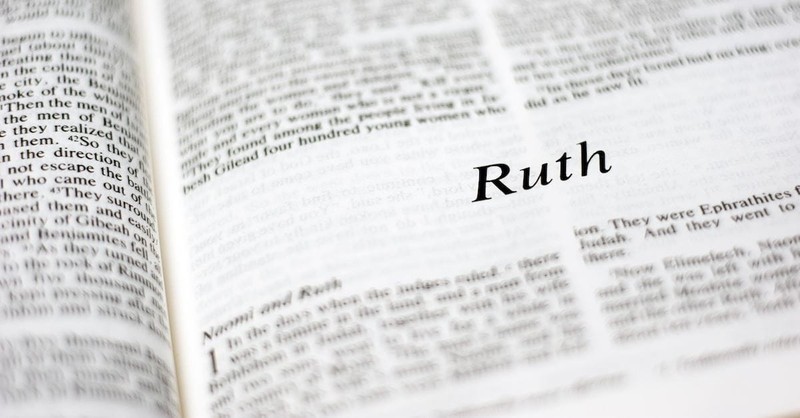
7. Teachability
Having a teachable spirit is vital to our walk with Christ. It’s true that God accepts us just as we are, but he also desires us to leave behind the habits, attitudes, and thoughts that are contrary to his word. As a mother of four, I hold the responsibility to teach, train, and correct each of my children. Our God does that for us as well, and Ruth demonstrates to me the importance of cultivating a teachable heart. Ruth did as her mother-in-law instructed, and God redeemed these two women through the kinsman-redeemer, Boaz. God receives us, and then he lovingly teaches us how to live a transformed life in our everyday life.
Photo Credit: Thinkstock
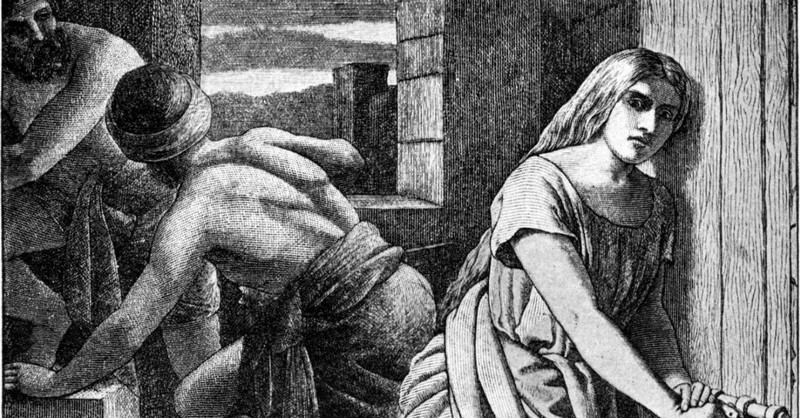
8. Hope
Rahab brings me hope that someone so beat up by life can have a place of purpose in God’s greater plan for humanity. Her heart was enamored by this God she didn’t know but longed to know, and she betrayed her own countrymen for a shot at hope in him. Rahab’s life was spared because she took a risky step towards hope in the Light of the World. This is what hope can do for us too. (Read more about Rahab in Joshua 2, 6) Sometimes hope seems risky, and yet our hearts pull us towards it as Rahab’s heart pulled her. Run towards hope.
Photo Credit: Thinkstock
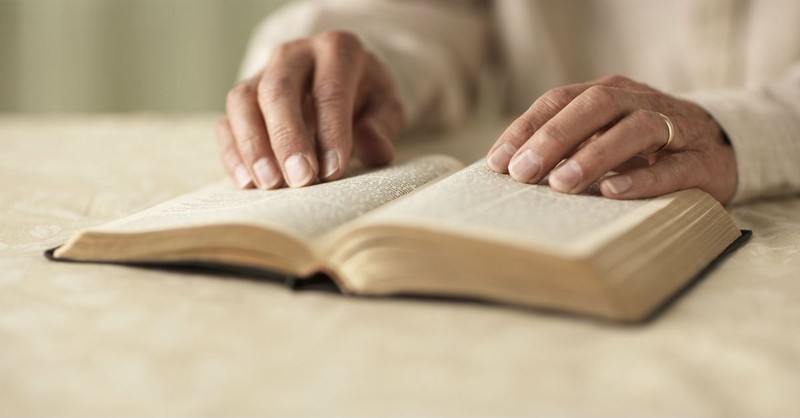
9. Tenacity
When I think about tenacity, I picture something that endures and is difficult to break. Tamar was a woman disgraced, unjustly accused, and thwarted from what was due her, according to the customs of her day. (You can read about her journey in Genesis 38.)
As a woman of the 21st century, it might seem strange that I relate to Tamar, a woman of one of the first centuries, but I see her tenacity for enduring, and I am encouraged. Following after Christ in this world filled with sin, pain, sorrow, and loneliness requires a tenacious heart. The enemy would love nothing less than to see us give up in despair. Develop a tenacious heart so that you are able to endure the trials that come your way.
Photo Credit: Thinkstock

10. Wisdom
All of these women, Mary, Bathsheba, Ruth, Rahab, and Tamar show us the power of wisdom and the importance of knowing when to speak and when to act. Proverbs gives us numerous verses and even whole chapters about the importance of wisdom. These women give me living examples of what wisdom looks like in tragic and challenging situations. They faced disgrace, neglect, and rejection, yet they employed strategic godly wisdom to experience redemption.
May we, with hearts wide open to God’s redeeming love, receive the greatest gift: Immanuel, God with us. This Christmas, as you sing carols, enjoy family, and experience bittersweet moments, may you ponder the lives of these five women listed in Matthew 1, be changed, and know the hope that changes lives.
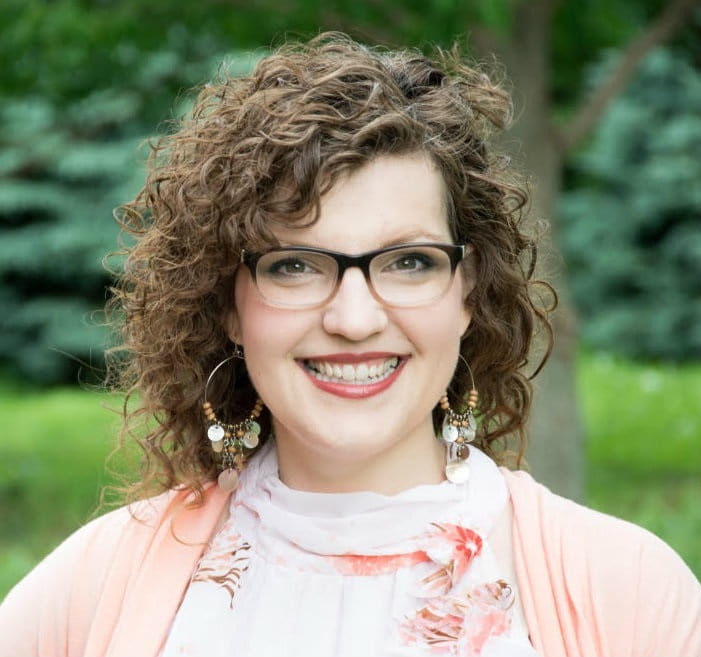 Jessica Van Roekel is a woman on the journey to wholeness through brokenness. She believes that through Christ your personal histories don’t have to define your present or determine your future. Her greatest desire is to see you live this “God-life” with all the power and grace that God provides. Jessica lives in a rural community with her husband and four children. She leads worship on Sundays but seeks to be a worshiper every day. You can connect with her at http://www.welcomegrace.com/and on http://www.facebook.com/yourJessicaVanRoekel
Jessica Van Roekel is a woman on the journey to wholeness through brokenness. She believes that through Christ your personal histories don’t have to define your present or determine your future. Her greatest desire is to see you live this “God-life” with all the power and grace that God provides. Jessica lives in a rural community with her husband and four children. She leads worship on Sundays but seeks to be a worshiper every day. You can connect with her at http://www.welcomegrace.com/and on http://www.facebook.com/yourJessicaVanRoekel
Photo Credit: Thinkstock
Originally published Thursday, 20 December 2018.








